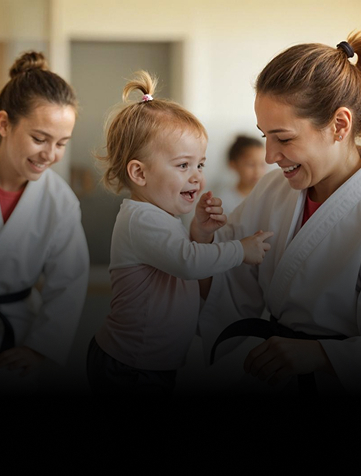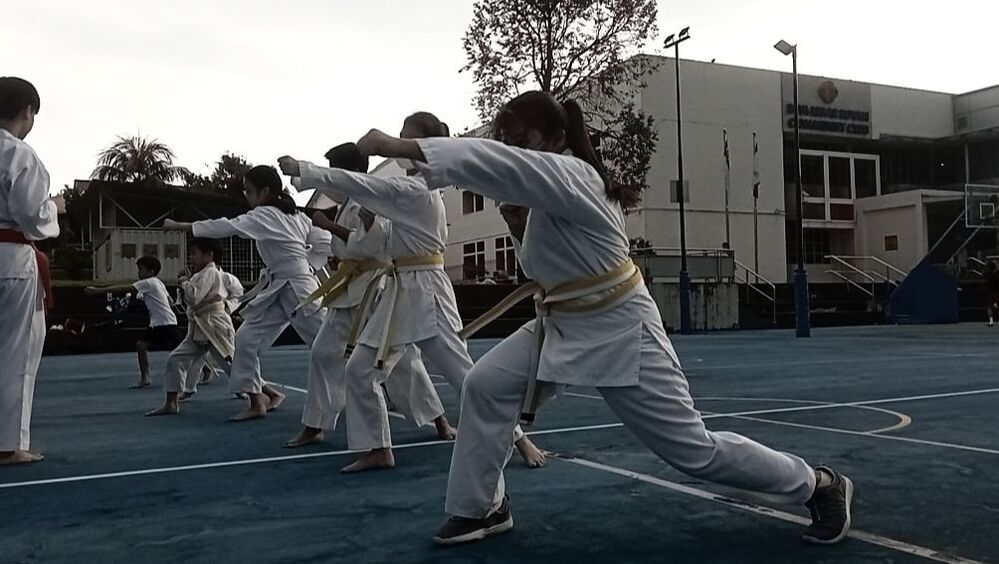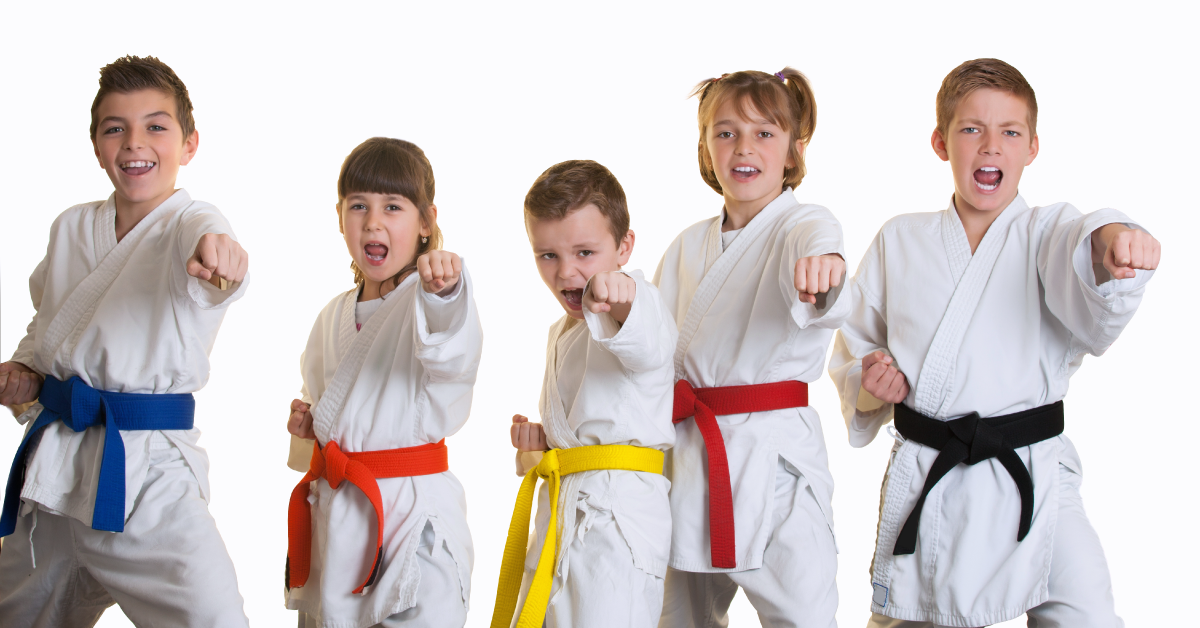Best Karate for kids – Approved by Parents, Loved by Kids
Just How Karate for Kids Can Increase Confidence and Self-control in Youthful Martial Artists
Karate for kids uses an unique chance to construct confidence and self-control in young martial musicians. As they find out brand-new techniques and face difficulties, they not just gain skills however additionally develop a strong sense of self-respect. This structured atmosphere urges them to respect the trip of improvement. Exactly how does this training translate into their everyday lives? Discover the deeper connections that make karate more than just a sporting activity.
The Importance of Confidence in Youth Development
Confidence is a necessary foundation in childhood years growth. When you support your child's self-esteem, you empower them to face challenges, take risks, and express themselves freely. Kids with confidence are much more ready to check out social scenarios and brand-new activities, which can bring about enduring relationships and beneficial experiences.Encouraging your youngster to get out of their comfort zone fosters strength. They find out that failing isn't completion however rather a stepping rock to success. By celebrating their achievements, regardless of how small, you help them acknowledge their capacities and worth.In this trip, assistance and positive support from you play a vital duty. Whether it's with praise or merely existing, your involvement increases their self-confidence. As they expand, this self-assurance becomes a long-lasting property, equipping them to browse both difficulties and opportunities with a strong feeling of self.
Exactly How Karate Educates Self-control and Focus
Martial arts aids you construct discipline and focus via its organized training program. As you exercise mindfulness during each session, you'll discover to concentrate far better both on and off the floor covering. And also, establishing and accomplishing goals in martial arts strengthens your capacity to stay attentive and dedicated.
Structured Training Program
While you take part in karate training, you'll rapidly find just how an organized program imparts self-control and focus in young professionals. Each class follows a particular format, including workouts, technique practice, and sparring. This uniformity instructs you to dedicate and appreciate the process to improvement. As you find out kinds and methods, you establish a sense of obligation for your very own progress.The organized atmosphere urges you to establish objectives, whether understanding a brand-new belt or developing a kata. You'll find that remaining focused throughout drills and classes hones your concentration. The self-control you cultivate in martial arts prolongs beyond the dojo, positively influencing your schoolwork and everyday regimens. Each session reinforces the significance of commitment, aiding you grow right into a more disciplined person.
Mindfulness in Practice
As you practice karate, you'll discover that mindfulness comes to be an essential part of your training. Each move requires your complete interest, aiding you stay concentrated on the here and now minute. You'll learn to tune out interruptions and focus on your breathing, activities, and intentions. This increased understanding develops your reflexes and boosts your discipline.During sparring or kinds, you'll discover the significance of being mentally existing - Karate Salisbury MD. You'll observe exactly how this focus not only improves your technique however likewise builds your confidence. By practicing mindfulness in karate, you grow patience and durability, important characteristics that prolong beyond the dojo. In this means, martial arts teaches you to harness your mind, helping you create a regimented method to obstacles both on and off the mat

Goal Setting Techniques
Establishing goals in martial arts isn't almost making belts; it's a powerful means to cultivate technique and focus. When you set certain, attainable targets, you produce a roadmap for your progress. Rather of just aiming to enhance your kicks, try focusing on grasping a particular strategy each month. This approach keeps you motivated and engaged.Breaking down bigger goals right into smaller, workable actions helps you track your development and celebrate tiny success along the road. Whether it's perfecting your position or increasing your sparring endurance, every objective strengthens your commitment. As you accomplish these objectives, you'll construct self-confidence in your skills and establish a solid sense of self-control that expands past the dojo into day-to-day life.
Structure Strength Via Martial Arts
Martial arts, especially martial arts, uses youngsters an unique chance to construct durability in a helpful atmosphere. In courses, they face obstacles that press their restrictions, whether it's grasping a brand-new technique or competing with a companion. Each obstacle, like a missed out on kick or a shed match, ends up being a chance to find out and grow.As they practice, kids learn to embrace discomfort and keep attempting, also when points obtain tough. They uncover that failure isn't the end; it becomes part of the journey. This state of mind assists them get better more powerful, not simply in the dojo, yet in day-to-day life.With each obstacle they get over, your youngster constructs self-confidence in their capability to tackle obstacles, sustaining their resolution. With karate, they'll understand that strength isn't simply about physical toughness; it's concerning psychological grit and determination, empowering them to encounter whatever life tosses their method.
The Role of Regard in Karate Educating
Respect is a fundamental concept in karate training, fostering a society of self-control and camaraderie amongst students. When you tip onto the dojo floor, you're not simply discovering techniques; you're additionally learning to value your trainers, peers, and the art itself (Karate Salisbury MD). Bowing at the start and end of class isn't simply a rule; it symbolizes your recommendation of others' efforts and dedication.As you create shared regard, you'll discover it boosts your discovering experience. You'll listen more diligently to your instructor and gain insights from fellow pupils. This environment urges useful objection and support, enabling everyone to expand together.Moreover, regard grows self-discipline. Identifying the value of effort and humbleness helps you remain concentrated on your training. In turn, this regard converts into your day-to-day life, improving your interactions content and relationships outside the dojo. With martial arts, you learn that respect is essential for personal growth and area building
Establishing Objectives and Achieving Success in Martial arts

Social Abilities and Team Effort in the Dojo
While training in the dojo, youngsters naturally develop important social skills and teamwork capacities. As they practice along with peers, they learn to communicate efficiently, share area, and assistance one another. Each class provides opportunities for cooperation, whether it's throughout partner drills or group workouts. This teamwork cultivates relationships and creates a feeling of belonging, making the dojo a nurturing environment.Kids additionally obtain useful problem resolution skills. When they experience obstacles, such as arguments throughout sparring, they learn to browse these scenarios constructively. They practice perseverance and empathy, understanding that everybody has different toughness and weaknesses.Moreover, taking part in team activities grows a feeling of accountability. You'll see your youngster discovering to depend on teammates and take responsibility for their role in a team. These experiences not only boost their fighting styles journey however also furnish them with social tools they'll carry into various other areas of life.

The Long-Term Advantages of Martial Arts Beyond Childhood
As youngsters mature and change right into the adult years, the benefits of karate extend much past the dojo. You'll locate that the self-control and focus found out with karate can convert into your academic and specialist life. Setting and accomplishing objectives in fighting styles fosters a strong work principles, which can press you to master any endeavor.Moreover, the confidence acquired from understanding strategies and competing can improve your self-confidence, aiding you take on obstacles head-on. This resilience becomes vital as you encounter the unpredictabilities of adulthood.Additionally, the social abilities created via synergy and friendship in the dojo can cause far better relationships in both personal and professional spheres. You'll learn to communicate efficiently, resolve conflicts, and build a supportive network.Ultimately, karate forms not simply experienced martial musicians, but all-round people ready to tackle the world.
Often Asked Questions
What Age Is Best to Start Martial Arts for Children?
You can start karate as early as age four or five, but it commonly depends upon your youngster's maturation and rate of interest. Locating a course that fits their age and power level makes a large difference.
Exist Any Kind Of Health Conveniences From Practicing Martial Arts?
Yes, exercising karate deals various wellness benefits. You'll enhance your toughness, sychronisation, and flexibility while enhancing cardio fitness. Plus, it enhances emphasis and mental health, making it a fantastic choice for total physical and psychological wellness.
Exactly How Frequently Should Youngsters Go To Martial Arts Courses?
You ought to urge your kids to attend karate classes at the very least 2 to 3 times a week. Uniformity assists them find out techniques successfully and develop skills, making their experience more fulfilling and delightful in the future.
Can Karate Aid With Handling Stress And Anxiety in Children?
Yes, karate can assist take care of anxiety in youngsters. It shows focus and self-discipline while giving a risk-free outlet for energy. You'll discover your youngster expanding more positive and calm as they exercise regularly.
What Gear Is Needed for Children Beginning Martial Arts?
